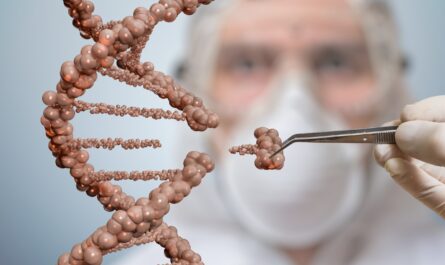Coffee has become a beloved beverage worldwide, with millions of people starting their day with a cup of joe. The popularity of coffee is not surprising, considering its rich flavor and the energizing effects of caffeine. However, recent research suggests that the impact of coffee consumption on kidney function may be more complex than previously thought, particularly when considering genetic factors.
In a study published in the journal Nutrients, researchers explored the association between coffee consumption, genetic predisposition to caffeine metabolism, and kidney function. With the rising prevalence of kidney diseases, understanding the effects of caffeine intake on kidney health is crucial for preventing and managing these conditions.
Animal studies have indicated that caffeine consumption can lead to kidney failure by increasing renal vascular resistance and proteinuria. Similarly, studies involving humans with polycystic kidney disease (PKD) have suggested that caffeine intake may increase the risk of cyst enlargement. However, the available data from observational studies have certain limitations, making it difficult to draw definitive conclusions.
To overcome these limitations, researchers conducted a Mendelian Randomization (MR) study. They analyzed genetic association summary statistics for plasma caffeine levels and caffeine intake from large-scale genome-wide association studies (GWAS). The researchers focused on specific genes involved in caffeine metabolism, namely cytochrome P450 1A2 (CYP1A2) and aryl hydrocarbon receptor (AHR), which have been previously linked to caffeine metabolism.
Using a two-sample MR approach, the researchers investigated the effects of single nucleotide polymorphisms (SNPs) within the CYP1A2 and AHR gene regions on kidney function. They examined parameters such as estimated glomerular filtration rate (eGFR), blood urea nitrogen (BUN), urinary sodium, albumin-creatinine ratio (UACR), and the risk of chronic kidney disease (CKD).
The results of the study were intriguing. Genetically predicted higher plasma caffeine levels were associated with adverse effects on eGFR, as determined by creatinine or cystatin C. On the other hand, a genetic predisposition to caffeine intake exhibited a protective effect on kidney function. It increased eGFR and lowered the risk of CKD. This discrepancy could be attributed to fast metabolizers of caffeine requiring a higher caffeine intake to achieve the same psychostimulant effect as slow metabolizers.
Furthermore, high genetically predicted plasma caffeine levels were associated with adverse effects on urinary sodium and BUN, which are biological markers of CKD progression. However, no evidence of harmful effects on albuminuria was found. Interestingly, previous research from the CKDGen Consortium GWAS suggested that an extra cup of coffee per day could provide a protective effect against CKD.
In conclusion, the findings of this MR study indicate that the impact of coffee consumption and genetic factors on kidney function is multifaceted. While coffee consumption may have a protective effect on kidney health, genetic factors related to caffeine metabolism can have detrimental effects. However, the study was unable to ascertain whether the observed effects on kidney function were a result of higher caffeine levels in the plasma or the benefits of consuming more caffeinated beverages. Future research should delve deeper into this aspect to provide a comprehensive understanding of the relationship between coffee, genetics, and kidney health.
*Note:
1. Source: Coherent Market Insights, Public sources, Desk research
2. We have leveraged AI tools to mine information and compile it




